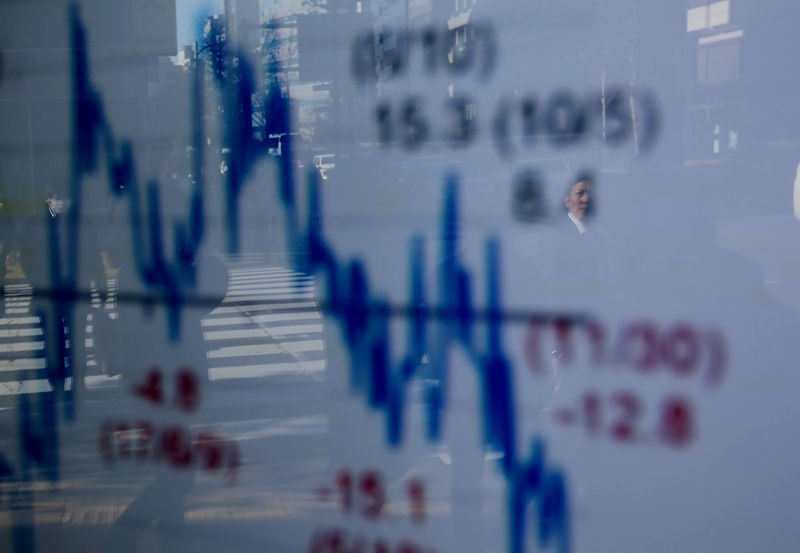By Ayai Tomisawa
TOKYO (Reuters) - Japan's food firms, once seen as a rare group of winners in the country's fight against deflation, are falling out of favor with investors as consumers reject price hikes on many household products.
Food company shares have only added 2.8 percent this year, compared with a 7.5 percent gain in the Topix, which in turn underperformed the world's many other equity indexes.
(For a graphic on 'Topix sectors' click https://tmsnrt.rs/2F8BI2A)
Prices of food items including soft drinks, yogurt, ramen noodles and ice cream, will go up from this spring, pushed up by higher labor and transportation costs.
At the same time, the increase in retail prices firms can expect to deliver will be capped by consumer resistance and what economists describe as Japan's deflationary mindset.
"Even if companies can raise their top lines, they would be struggling to make profits due to rising costs and that's the main challenge that food makers are facing right now," said Keita Kubota, senior investment manager at Aberdeen Standard Investment, adding that the earnings from Coca-Cola (NYSE:KO) and Suntory do not bode well for the food industry.
"While there are lots of price hikes planned in 2019, we still don't know how much these price hikes would lead to profits."
Indeed, many companies, such as Coca-Cola Bottlers Japan Holdings Inc, Suntory Beverage & Food and potato chips maker Calbee Inc, have warned of falls in profits as the planned price hikes fail to cover rising upstream costs.
Mizuho Securities says the combined operating profit for 20 Japanese food companies for the December quarter fell 5 percent year-on-year.
In January, Coca-Cola Japan said it would raise prices on some of its large bottled beverages in April. This, however, would not help counter the full impact of rising costs and on Feb. 14 it said it expected a 29 percent hit to its 2019 annual profit.
The next day, its share price tumbled 13 percent to a 2-1/2 year low, around where it has been trading since.
(For a graphic on 'Japan food companies' click https://tmsnrt.rs/2F8nC19)
It's a similar picture in other parts of the sector with Suntory Beverage to raise its beverage prices in May and forecasting a 17 percent drop in annual net profit. Calbee will raise its potato chips prices in May and has slashed its operating profit outlook by 8.8 percent for the fiscal year through March.
The sector's market underperformance contrasts with three to four years ago, when investors cheered firms' food price hikes, buoyed by hopes that monetary and fiscal stimulus would help businesses pass on costs to customers and stoke a virtuous consumption cycle.
Now, however, not even an exemption for food from a planned sales tax hike in October has been able help stocks in the sector.
That's partly because of still high valuations: food maker shares currently trade at 18.6-times earnings, compared with a multiple of 13 for Topix and 9.8 for the auto sector.
"The government failed to counter falling consumption when they raised sales tax in 2014. Consumer sentiment hasn't changed since then," said Hiroyuki Ueno, a senior strategist at Sumitomo Mitsui Trust Asset Management.
"Since valuations have become too expensive, we want to avoid food shares."
